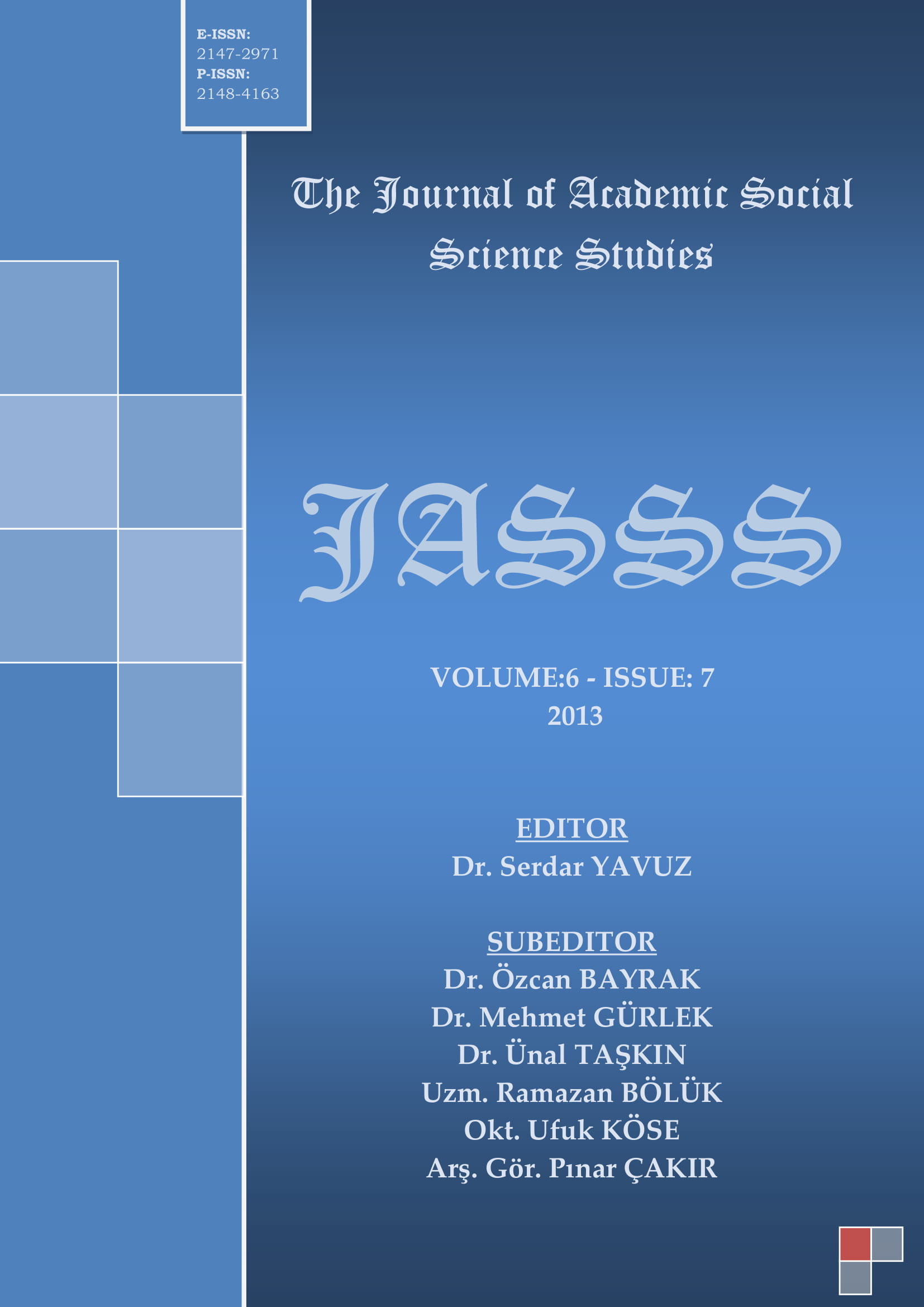FEN BİLGİSİ ÖĞRETMEN ADAYLARININ AKTİVİTE TEMELLİ BİLİMİN DOĞASI ÖĞRETİMİNE YÖNELİK GÖRÜŞLERİ İLE BU ÖĞRETİMİN BİLİMSEL TUTUM VE SÜREÇ BECERİLERİNE ETKİSİ
Author :
Abstract
Son yıllarda yaşanan gelişmeler bilim ve bilimsel bilgiye verilen önemin artmasına neden olmuş, ilköğretim müfredatında klasik eğitim anlayışından uzaklaşılarak bilimsel bilginin önemi üzerine odaklanılmıştır. Farklı alanlarda yaşanan gelişmelerin toplumları oldukça etkilediği bu dönemde, sürece uyum sağlayabilmek amacıyla, bilimsel okuryazarlık üzerine yapılan vurgu artmış; bu bağlamda fen dersleri temel odak noktası haline gelmiştir. Araştırmada, fen bilgisi öğretmen adaylarının aktivite temelli bilimin doğası öğretimine yönelik görüşlerinin ve bu öğretimin bilimsel tutum ve süreç becerilerine olan etkisinin belirlenmesi amaçlanmıştır. Araştırma 2008–2009 eğitim-öğretim yılı güz döneminde, İstanbul’da bulunan büyük ölçekli bir üniversitenin, ilköğretim bölümü fen bilgisi öğretmenliği ABD birinci sınıfında öğrenim görmekte olan 22 öğretmen adayının katılımıyla gerçekleştirilmiştir. Araştırmada tek grup ön test-son test deneme modeli kullanılmıştır (Büyüköztürk ve diğ., 2009). Araştırma bizzat araştırmacının katılımıyla birlikte yürütülmüş ve sekiz hafta sürmüştür. Araştırmada işlenen derslerin temelini doğrudan öğretim yaklaşımına göre tasarlanmış aktiviteler oluşturmaktadır. Araştırma verileri 36 sorudan oluşan “bilimsel süreç becerileri” ölçeği; 40 sorudan oluşan “bilimsel tutum ölçeği” ve görüşme soruları kullanılarak toplanmıştır. Araştırma verileri SPSS programında “eşleştirilmiş iki grup testi” (paired sample t-test), betimsel istatistik tekniği ve içerik analizi kullanılarak değerlendirilmiştir. Araştırmadan elde edilen sonuçlar, aktivite temelli bilimin doğası öğretiminin, bilimsel süreç becerilerinin gelişimi açısından olumlu katkı sağladığını ortaya koymaktadır. Araştırmada öğretmen adaylarının bilimsel tutumları “iyi” seviyede olmasına karşın, her iki grupta yer alan öğretmen adaylarının bilimsel tutumlarının ön ve son test açısından anlamlı bir farklılık göstermediği tespit edilmiştir. Araştırmada bilimin doğası öğretimine ilişkin görüşler incelendiğinde ise öğretmen adaylarının, bilimin doğası öğretimine ilişkin genellikle olumlu açıklamalarda bulundukları görülmektedir.
Keywords
Abstract
Science and scientific knowledge has gained big momentum for the last decades. This enables many countries to focus on scientific knowledge, moving away from outmoded educational approaches in primary educational curricula. In the contemporary world, in which scientific literacy really matters, science classes have finally started to attract the attention it deserves. The study aims at detecting the beliefs of science teacher candidates on teaching of the nature of activity-based science and the effects of such teaching on their scientific attitudes and process skills. The study was held on 22 teacher candidates who were taught in the science teaching department for primary schools of a big-scaled university in the Turkish city of Istanbul during the first semester of 2008-2009 schooling year. In the study, pre-test and post-test assessment model with single group was used (Büyüköztürk et al, 2009). The study had directly been made by the researchers for eight weeks in total. The classes in the scope of the study were constructed on the basis of direct teaching activities. Data of the study were collected by means of a ‘scientific process skills’ scale with 36 questions, a ‘scientific attitude scale’ with 40 questions, and a series of interviews with the teacher candidates. Findings of the study were assessed by using a paired sample t-test on SPSS program, qualitative statistical techniques and content analyses. Results of the study showed that teaching of the nature of activity-based science affected on scientific process skills in a positive manner. It was also found that there was no significant difference between the scientific attitudes of the teacher candidates from each group upon their pre-tests and post-tests although all of the teacher candidates’ scientific attitudes were ‘good.’ When the views of the candidates were analyzed on nature of science, it was seen that their explanations on teaching nature of science were positive in general.
